COVID-19 Update: April 14, 2020
The following is the latest COVID-19 information from Pennsylvania state regulators, the Pennsylvania legislature, and federal regulators and others as of 4:00 p.m. on Tuesday, April 14.
Pennsylvania Update
Governor Wolf
Governor Wolf today announced that businesses that collect Pennsylvania sales tax will not have to make accelerated sales tax pre-payments over the next three months. That means businesses that normally have a monthly prepayment requirement will not be charged penalties for missing the prepayment deadline during this three-month period.
 Daily COVID-19 Briefing
Daily COVID-19 Briefing
- For the fourth time in the last five days, the number of newly reported cases fell. Today’s total was the lowest in nearly two weeks.
- But the death count was the third highest single-day total since the pandemic began. Secretary Levine warned that this could be because of reports still coming in from the weekend.
- 1250 health care workers have tested positive for COVID-19, as have 1869 residents of 232 long-term-care facilities.
- 42 percent of acute-care beds and 37 percent of ICU beds remain unoccupied and nearly 70 percent of ventilators are still available for use.
- To date, about one percent of the state’s population has been tested for COVID-19, with nearly 20 percent testing positive.
- 2306 COVID-19 patients are currently in the hospital, 666 of them on ventilators.
- Demographic data on race and ethnicity is still proving elusive. (See the paragraph below about the department’s alert on this subject.)
- A mass testing site should be opening in East Stroudsburg later this week or next week. It will focus on testing health care workers and seniors. There are not enough testing materials to test those without symptoms.
- An alternative care facility in East Stroudsburg will serve patients who are on the road to recovery from COVID-19, to free hospital beds for more seriously ill patients.
- In no part of the state are hospitals overwhelmed at this time. The state is keeping a close eye on this.
- Yesterday the state shipped a “large push-out” of personal protective equipment to providers.
- The secretary attributed the decline in the number of daily tests administered to the closing of the mass testing site in Philadelphia and the temporary closing of the mass testing site in Montgomery County.
Department of Health
- The Department of Health, working with the Hospital and Healthsystem Association of Pennsylvania, has published a revised Interim Pennsylvania Crisis Standards of Care for Pandemic Guidelines Work on this document started last fall and not in response to the COVID-19 public health emergency and is viewed by the Department of Health as a work in progress that will resume once the current pandemic ends. The purpose of the document, it states, “…is to help guide the allocation of patient care resources during an overwhelming public health emergency of any kind when demand for services dramatically exceeds the supply of resources needed.”
- The department has issued an alert to laboratories after identifying a large number of laboratory test results submitted without key variables such as patient date of birth, address, and telephone number. In addition, the alert notes that race and ethnicity data is missing from more than 60 percent of reports submitted. In the alert, the department directs laboratories to include all of this data in the reports they submit to the Department of Health. Recipients of this alert included hospitals, EMS councils, local health jurisdictions, professional organizations, and long-term-care facilities.
Department of Human Services
- DHS has issued a memorandum to HealthChoices physical health managed care organizations to introduce a new ICD-10-CM code for COVID-19.
- DHS has issued a CHIP policy clarification addressing provider enrollment and revalidation changes during the COVID-19 crisis. The new policy makes it easier for providers not currently enrolled to serve CHIP patients to do so and enables providers who have not re-enrolled to serve CHIP patients to continue doing so.
 Department of State
Department of State
- The Department of State has issued a number of pharmacy-related waivers in response to the COVID-19 emergency. The waivers address:
- patient signature requirements for pharmaceuticals
- pharmacy interns about to graduate
- pharmacy intern certificate term limits and pharmacy “resident” guidance
- pharmacist authority to carry out COVID-19 testing
- pharmacy alternative care sites
- increased prescribing limits for nonscheduled legend drugs and schedule V controlled substances
- The Department of State has suspended certain supervision requirements for physical therapists, occupational therapists, speech language pathologists, and audiologists during the COVID-19 emergency.
Department of Labor
The state’s Department of Labor has established a new hiring portal on which employers in life-sustaining businesses can advertise job openings. Employers may advertise on the site if they are formally considered life-sustaining businesses and have at least 10 jobs to offer. The process begins with completing an employer intake form. A number of health care entities already list jobs on the site.
General Assembly
Today the House of Representatives met to continue considering legislation that would create a pathway for businesses to reopen despite the governor’s executive order mandating the closure of non-essential businesses. Arguments on the floor and in committee meetings fell along party lines, with Republicans advocating the reopening of businesses and Democrats wanting to continue following the governor’s orders. Ultimately the House passed along party lines SB 613, which primarily provides for the creation of a COVID-19 emergency mitigation plan for businesses.
The House is also expected to pass, in concurrence with Senate amendments, SB 841, which reauthorizes the Pennsylvania Health Care Cost Containment Council (PHC4) Act by adding data collection requirements and other measures in response to the COVID-19 emergency.
The Senate announced today that it will return to session this week to “consider legislation that will provide a safe path for re-opening the state’s economy.” This came in response to Governor Wolf’s announcement yesterday that he is participating in a multi-state effort to begin planning for next steps beyond stay-at-home orders and for re-opening the state’s economy.
Federal Update
Centers for Medicare & Medicaid Services
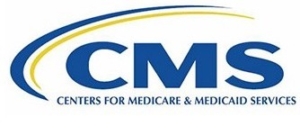 CMS has posted a new FAQ on the Families First Coronavirus Response Act and the Coronavirus Aid, Relief, and Economic Security Act (the CARES Act). Among other subjects, this FAQ addresses the emergency period described in the Families First law; the new optional Medicaid eligibility group; benefits and cost-sharing for COVID-19-related testing and diagnosis; implications for the CHIP program; implications for the basic health program; changes in federal medical assistance matching funds (FMAP) adopted under the Families First bill; circumstances under which FMAP will be 100 percent; and further information about the CARES Act.
CMS has posted a new FAQ on the Families First Coronavirus Response Act and the Coronavirus Aid, Relief, and Economic Security Act (the CARES Act). Among other subjects, this FAQ addresses the emergency period described in the Families First law; the new optional Medicaid eligibility group; benefits and cost-sharing for COVID-19-related testing and diagnosis; implications for the CHIP program; implications for the basic health program; changes in federal medical assistance matching funds (FMAP) adopted under the Families First bill; circumstances under which FMAP will be 100 percent; and further information about the CARES Act.- The Kaiser Family Foundation has published a “Medicaid emergency authority tracker” that is an interactive map identifying approved section 1135 waivers, Medicaid disaster relief state plan amendments, and section 1915 Appendix K waivers. The site also offers brief descriptions of the emergency authorizations CMS has granted.
- CMS has updated its list of the section 1135 waivers it has granted to states.
- CMS has postponed the 2019 benefit year HHS risk adjustment data validation (HHS-RADV) process to enable insurers and providers to focus on COVID-19-related activities.
- CMS has advised state survey agency directors about new, temporary flexibility in the transfer or discharge of skilled nursing facility or nursing facility patients for COVID-19-related reasons. In general, if two or more certified long-term-care facilities want to transfer or discharge residents between themselves for the purpose of cohorting, based on their COVID-19 status, they do not need any additional approval to do so. This same flexibility does not apply if one of the two facilities in such transfers is not certified.
Department of Health and Human Services
- HHS is issuing an amendment to its declaration under the public readiness and emergency preparedness act for medical counter-measures against COVID-19 to extend liability immunity for activities related to medical counter-measures against COVID-19 authorized under the Coronavirus Aid, Relief, and Economic Security Act (the CARES Act).
- HHS has announced that it will collaborate with multiple non-government organizations on the development of convalescent plasma and hyperimmune globulin immunotherapies that would use antibodies from COVID-19 survivors to treat COVID-19 patients.
Drug Enforcement Administration
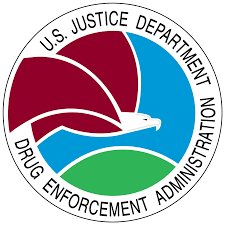 The DEA has published a letter that grants to the satellite hospitals and clinics of DEA-registered hospitals, under certain conditions, the flexibility to receive and administer certain controlled substances. The DEA also is permitting the distributors of controlled substances to deliver them directly to such facilities.
The DEA has published a letter that grants to the satellite hospitals and clinics of DEA-registered hospitals, under certain conditions, the flexibility to receive and administer certain controlled substances. The DEA also is permitting the distributors of controlled substances to deliver them directly to such facilities.- The DEA is granting a temporary exception to the requirement that only licensed practitioners may sign for the delivery of narcotics at narcotic treatment programs to permit an alternative authorized individual to sign for such deliveries if certain conditions are met.
- Under current law, the quantity of controlled substances that registered dispensers of such substances may distribute to other practitioners may not exceed five percent of the total number of dosage units of all controlled substances those individual dispensers distribute in a year. The DEA is now waiving this so-called five percent rule for the duration of the COVID-19 emergency while retaining other distribution-related requirements.
Occupational Safety and Health Administration
- OSHA has published its interim enforcement response plan providing instructions and guidance to OSHA staff for handling COVID-19-related complaints, referrals, and severe illness reports.
Food and Drug Administration
- The FDA has issued an emergency use authorization (EUA) for a specific commercial infusion pump that, when connected to a nebulizer for tracheal delivery of nebulized medications, allows for prolonged treatment with these medications without additional risks for patients.
American Medical Association
- The AMA has established two new CPT codes for reporting COVID-19 antibody testing and developed guidance on their use.
Resources to Consult
Pennsylvania Department of Human Services
Pennsylvania Department of Health
Centers for Disease Control and Prevention
(To receive this daily update directly, sign up for our mailing list at info@pasafetynet.org.)
 Over the weekend, House Speaker Michael Turzai changed the House of Representatives’ session schedule to hold a non-voting session day today and a voting session day tomorrow in an effort to enable Republicans to move forward with relief efforts for businesses related to the COVID-19 crisis. There has been speculation that if a quorum is present the Speaker may seek to suspend temporary House rules permitting remote voting to ease the passage of Republican-sponsored relief measures for businesses affected by limits on their ability to operate during the COVID-19 emergency. The House also has canceled its session for Wednesday and Thursday of this week.
Over the weekend, House Speaker Michael Turzai changed the House of Representatives’ session schedule to hold a non-voting session day today and a voting session day tomorrow in an effort to enable Republicans to move forward with relief efforts for businesses related to the COVID-19 crisis. There has been speculation that if a quorum is present the Speaker may seek to suspend temporary House rules permitting remote voting to ease the passage of Republican-sponsored relief measures for businesses affected by limits on their ability to operate during the COVID-19 emergency. The House also has canceled its session for Wednesday and Thursday of this week. Children’s Health Insurance Program
Children’s Health Insurance Program Department of Health and Human Services
Department of Health and Human Services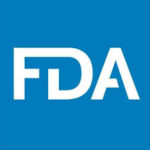 The FDA has released guidance on its
The FDA has released guidance on its  MACPAC has written to CMS administrator Seema Verma to express its concern that the manner in which CMS has chosen to distribute $30 billion of the $100 billion designated in the CARES Act for hospitals and health care providers “…does not account for the real and pressing concerns of safety-net providers that are on the frontlines of serving the nation’s poorest and most vulnerable people…” MACPAC also asks Ms. Verma to “…ensure that safety-net providers, including hospitals considered deemed disproportionate share hospitals (DSH) for the purpose of Medicaid payment…children’s hospitals, and other providers serving Medicaid and other low-income patients have access to federal funds made available through the CARES Act without delay.” See the MACPAC letter
MACPAC has written to CMS administrator Seema Verma to express its concern that the manner in which CMS has chosen to distribute $30 billion of the $100 billion designated in the CARES Act for hospitals and health care providers “…does not account for the real and pressing concerns of safety-net providers that are on the frontlines of serving the nation’s poorest and most vulnerable people…” MACPAC also asks Ms. Verma to “…ensure that safety-net providers, including hospitals considered deemed disproportionate share hospitals (DSH) for the purpose of Medicaid payment…children’s hospitals, and other providers serving Medicaid and other low-income patients have access to federal funds made available through the CARES Act without delay.” See the MACPAC letter  With CMS already conceding that high-volume Medicaid providers may be shortchanged in the initial distribution of funds from the $100 billion designated for hospitals and health care providers in the CARES Act, SNAP asked Ms. Verma to “…acknowledge the special needs of these hospitals and the roles they play in their communities by ensuring that they will receive much-needed assistance in the second round of grants as well.”
With CMS already conceding that high-volume Medicaid providers may be shortchanged in the initial distribution of funds from the $100 billion designated for hospitals and health care providers in the CARES Act, SNAP asked Ms. Verma to “…acknowledge the special needs of these hospitals and the roles they play in their communities by ensuring that they will receive much-needed assistance in the second round of grants as well.” Department of Human Services
Department of Human Services Department of Health and Human Services
Department of Health and Human Services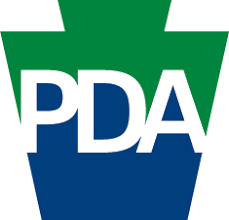 The Department of Aging has issued guidance informing operators of facilities that serve older adults that the Identogo/Idemia sites that facilitate the FBI background checks of individuals who work at such facilities may remain open as life-sustaining businesses during the COVID-19 crisis; that there is no change in the background check requirements or processes for applicants seeking employment in such facilities; and that there are circumstances under which individuals who are unable to obtain FBI background checks because of the closure of some Identogo/Idemia sites may qualify for provisional hiring. See the guidance
The Department of Aging has issued guidance informing operators of facilities that serve older adults that the Identogo/Idemia sites that facilitate the FBI background checks of individuals who work at such facilities may remain open as life-sustaining businesses during the COVID-19 crisis; that there is no change in the background check requirements or processes for applicants seeking employment in such facilities; and that there are circumstances under which individuals who are unable to obtain FBI background checks because of the closure of some Identogo/Idemia sites may qualify for provisional hiring. See the guidance  Centers for Medicare & Medicaid Services
Centers for Medicare & Medicaid Services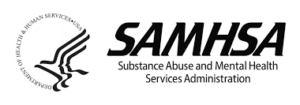 SAMHSA will fund
SAMHSA will fund  The Governor Wolf/Department of Health Daily Briefing
The Governor Wolf/Department of Health Daily Briefing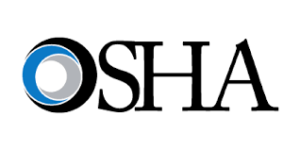 OSHA has provided interim guidance to its regional administrators and state plan designees regarding
OSHA has provided interim guidance to its regional administrators and state plan designees regarding  There are now positive cases of COVID-19 in 60 of Pennsylvania’s 67 counties.
There are now positive cases of COVID-19 in 60 of Pennsylvania’s 67 counties. CMS has introduced dozens of changes that involve waivers from current regulations and requirements. A comprehensive, 26-page CMS document describing these changes can be found
CMS has introduced dozens of changes that involve waivers from current regulations and requirements. A comprehensive, 26-page CMS document describing these changes can be found  CMS is waiving current requirements to permit physicians whose privileges will expire to continue practicing at the hospital and for new physicians to be able to practice before full medical staff/governing body review and approval to address workforce concerns related to COVID-19. CMS also is waiving requirements about details of the credentialing and privileging process.
CMS is waiving current requirements to permit physicians whose privileges will expire to continue practicing at the hospital and for new physicians to be able to practice before full medical staff/governing body review and approval to address workforce concerns related to COVID-19. CMS also is waiving requirements about details of the credentialing and privileging process. CMS is waiving the requirement that physicians and non-physician practitioners must perform in-person visits for nursing home residents and will permit visits to be conducted, as appropriate, via telehealth options.
CMS is waiving the requirement that physicians and non-physician practitioners must perform in-person visits for nursing home residents and will permit visits to be conducted, as appropriate, via telehealth options. CMS is waiving various requirements that limit and define the use and documentation of verbal orders in a hospital.
CMS is waiving various requirements that limit and define the use and documentation of verbal orders in a hospital. Governor Wolf
Governor Wolf A new update outlines
A new update outlines